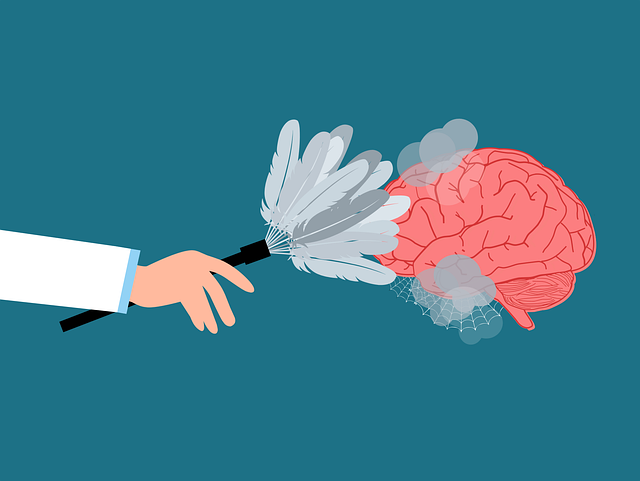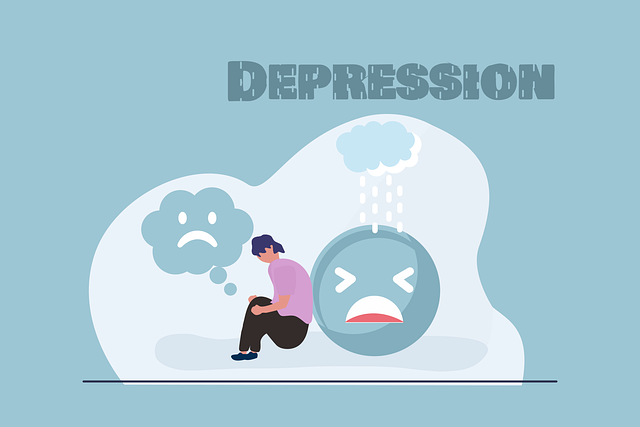Lafayette Phobias Therapy emphasizes holistic risk assessment as a cornerstone for mental health practice, prioritizing patient safety and well-being. This involves evaluating physical and psychological environments, recognizing trigger points, and addressing therapist burnout. By analyzing real-life scenarios through case studies, therapists enhance their skills in ethical decision-making, confidential communication, and stigma reduction. Lafayette Phobias Therapy's comprehensive approach ensures comprehensive care for clients with complex conditions, focusing on crisis prevention and open discussions about fears.
Mental health professionals are tasked with navigating complex emotional landscapes, requiring a thorough understanding of risk assessment. This article explores essential aspects of integrating comprehensive risk assessments into mental health practice, focusing on strategies to identify and mitigate potential hazards. We present a case study using Lafayette Phobias Therapy to demonstrate practical approaches to risk management. Additionally, ethical considerations and effective mitigation strategies are discussed, emphasizing the vital role of client safety in mental health care.
- Understanding Risk Assessment in Mental Health Practice
- Identifying Potential Risks and Hazards in Therapy Settings
- Lafayette Phobias Therapy: A Case Study Approach to Risk Management
- Ethical Considerations for Mental Health Professionals
- Strategies for Effective Risk Mitigation and Client Safety
Understanding Risk Assessment in Mental Health Practice

In mental health practice, risk assessment is a critical component of ensuring patient safety and well-being. It involves systematically evaluating various factors that could potentially pose risks to both clients and healthcare providers. This process allows professionals like those at Lafayette Phobias Therapy to proactively identify and mitigate dangers, fostering a secure environment for therapy. By delving into patient history, current symptoms, and personal circumstances, practitioners can anticipate challenges and implement appropriate interventions.
Risk assessment goes beyond identifying vulnerabilities; it also encompasses resilience building and burnout prevention strategies for healthcare providers. Mental health professionals must be adept at navigating complex situations, managing their own emotional well-being, and fostering strong therapeutic alliances. Incorporating practices that promote self-care and resilience can significantly reduce the risk of burnout, ensuring these dedicated individuals can continue to offer high-quality care over time.
Identifying Potential Risks and Hazards in Therapy Settings

In therapy settings, identifying potential risks and hazards is a multifaceted process that involves evaluating the physical environment as well as the psychological dynamics between clients and therapists. Mental health professionals in Lafayette Phobias Therapy centers must be vigilant in recognizing factors that could contribute to adverse outcomes, such as triggers for existing conditions or new ones introduced through the therapeutic process. For instance, a client with a history of trauma might experience flashbacks or heightened anxiety during exposure therapy, highlighting the need for adaptive coping strategies and a safe, supportive environment.
Furthermore, professionals should consider the impact of their own well-being on service delivery. Burnout is a significant concern among therapists, which can lead to decreased empathy, impaired judgment, and reduced effectiveness in treatment. Incorporating practices like Mindfulness Meditation and promoting Self-Esteem Improvement within a Community Outreach Program Implementation can mitigate these risks, fostering a healthier work environment that ultimately benefits both the therapist and their clients.
Lafayette Phobias Therapy: A Case Study Approach to Risk Management

Lafayette Phobias Therapy offers a unique and effective case study approach to risk management for mental health professionals. By examining real-life scenarios and analyzing successful interventions, therapists can enhance their ability to navigate complex situations safely and ethically. This method allows practitioners to develop practical skills in risk assessment, enabling them to identify potential hazards and implement tailored strategies for mitigation.
Incorporating Lafayette Phobias Therapy into training programs, alongside initiatives like Mental Health Education Programs Design and Stress Management Workshops Organization, can significantly contribute to the professional development of therapists. Encouraging positive thinking and fostering a culture of open dialogue facilitate a comprehensive understanding of risk factors and promote better coping mechanisms. This integrated approach not only strengthens mental health support but also ensures the well-being and resilience of both professionals and their clients.
Ethical Considerations for Mental Health Professionals

Mental health professionals face a unique set of ethical dilemmas and considerations in their work with clients. One key aspect is balancing the benefits of therapy against potential risks, especially when addressing sensitive issues like phobias (e.g., Lafayette Phobias Therapy). Therapists must be mindful of the impact of disclosure and ensure client confidentiality while simultaneously promoting open communication to facilitate effective treatment.
The profession’s ethical guidelines play a crucial role in shaping these decisions. They provide a framework for professionals to navigate complex scenarios, such as when to refer clients for specialized care or how to handle situations where a client’s mental illness may hinder their ability to make informed choices. Moreover, mental health practitioners contribute to stigma reduction efforts and self-esteem improvement by fostering an environment of understanding and empathy, thereby enhancing emotional well-being promotion techniques during therapy sessions.
Strategies for Effective Risk Mitigation and Client Safety

For mental health professionals, implementing robust strategies for risk mitigation and client safety is paramount, especially in addressing complex conditions like phobias. Lafayette Phobias Therapy emphasizes a comprehensive approach that combines thorough risk assessment with proactive management. This involves regular review of case notes to identify potential triggers or escalating symptoms, ensuring immediate intervention protocols are in place.
Risk Management Planning for Mental Health Professionals should encompass not just crisis prevention but also fostering an environment of support and understanding. By integrating mental illness stigma reduction efforts into their practice, professionals can create a safer space for clients to openly discuss their fears. This dual focus on risk assessment and management, coupled with stigma reduction, ensures the highest level of care and client safety in addressing challenges like phobias.
Mental health professionals must navigate complex ethical and practical landscapes when managing client risks. By understanding risk assessment, identifying potential hazards, and adopting evidence-based strategies like those exemplified in the case study of Lafayette Phobias Therapy, practitioners can ensure effective risk mitigation and enhanced client safety. Ethical considerations play a pivotal role in guiding decisions, ensuring respect for clients’ autonomy while prioritizing their well-being. Incorporating these key elements into practice fosters a secure environment, ultimately promoting positive outcomes in mental health care.














